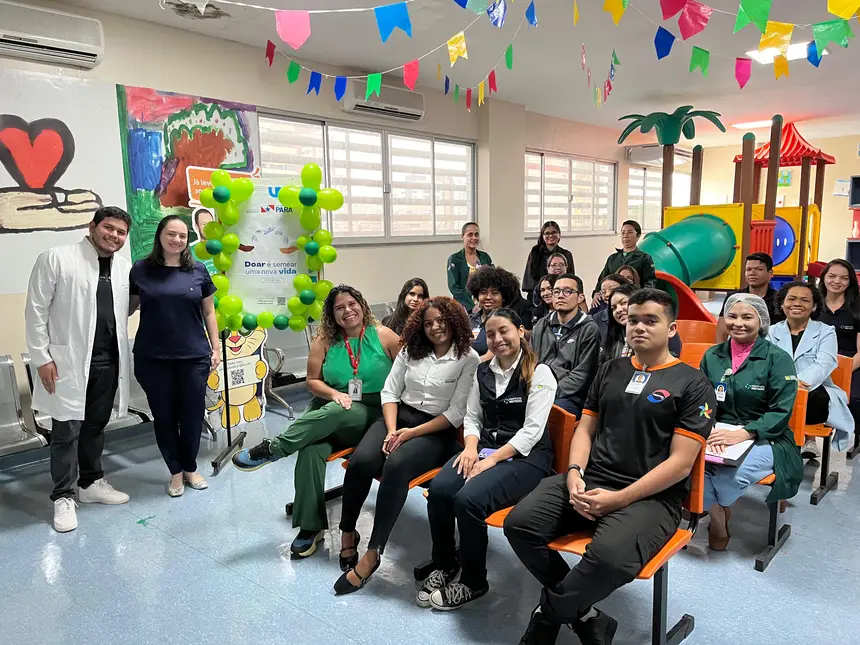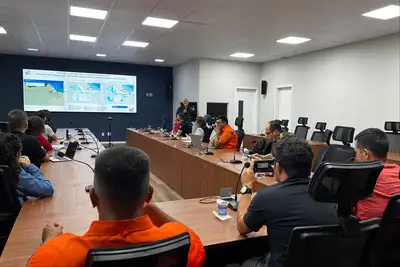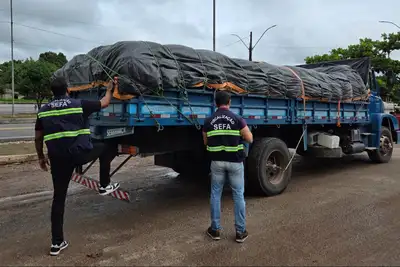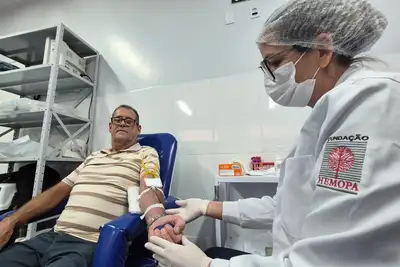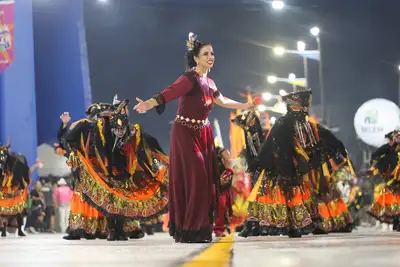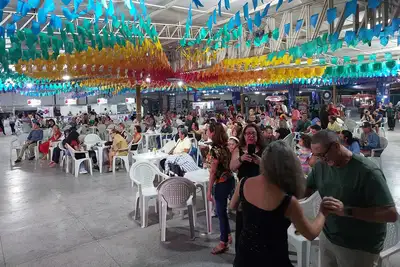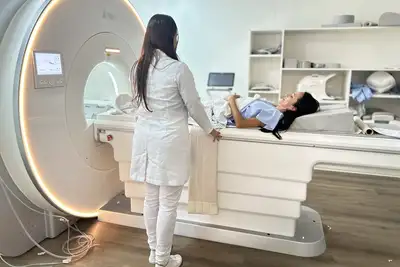Lecture at the Children's Oncology Hospital Emphasizes the Importance of Organ Donation
The action reinforced the need for family authorization in the donation process, clarified myths, and presented real stories of lives transformed after transplants.
The Octávio Lobo Children's Oncology Hospital (Hoiol), in Belém, held a lecture on Tuesday (30) to encourage organ and tissue donation. The action aimed to strengthen engagement around the topic, essential for public health, clarifying doubts, combating prejudices, and reinforcing the importance of the family decision at the moment of authorization for donation.
Information was provided about the medical and legal criteria involved in the donation process and the direct impact that each act of solidarity can represent in the lives of patients awaiting a transplant.
For Matheus Bernardes, a member of the Intra-Hospital Commission for Organ and Tissue Donation (Cihdott) at Hoiol, it is essential to invest in continuous educational campaigns, providing clear, accessible, and humanized information. "Actions within hospitals, schools, churches, and community centers help demystify the topic, showing that donation can save lives, and that each person can be an essential link in this chain of solidarity. Moreover, the testimony of families who have experienced the process can be a powerful tool for raising awareness," emphasized Matheus Bernardes.
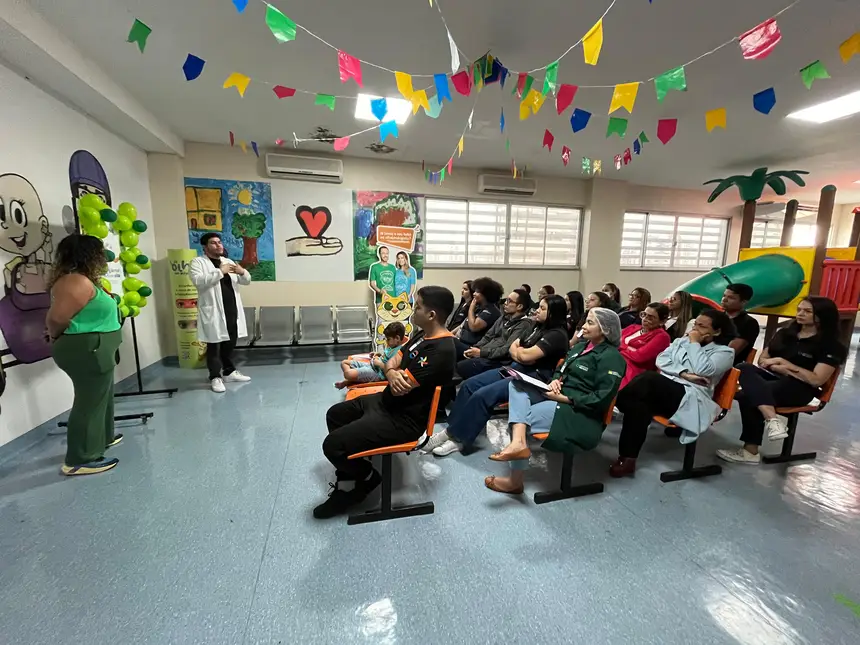
Support - Another highlighted point was how health professionals can deal with the emotional impact of donation and transplantation. According to Matheus Bernardes, qualified listening, welcoming, and empathy are fundamental to providing support to families in moments of mourning and decision. "Continuous psychological support, both for families and for health teams, is considered indispensable to face the emotional burden of this process, which involves pain, hope, and new beginnings," he stated.
Stories of children and adolescents who received an organ or bone marrow and were able to resume their lives in health were sources of inspiration. "Recently, we had a case in our Hospital of a pediatric patient with Wilms tumor who received a kidney from a donor. This victory reinforces the importance of our awareness action and highlights that together we can increasingly save our children and offer them the chance for a future with better quality of life," highlighted Matheus Bernardes.
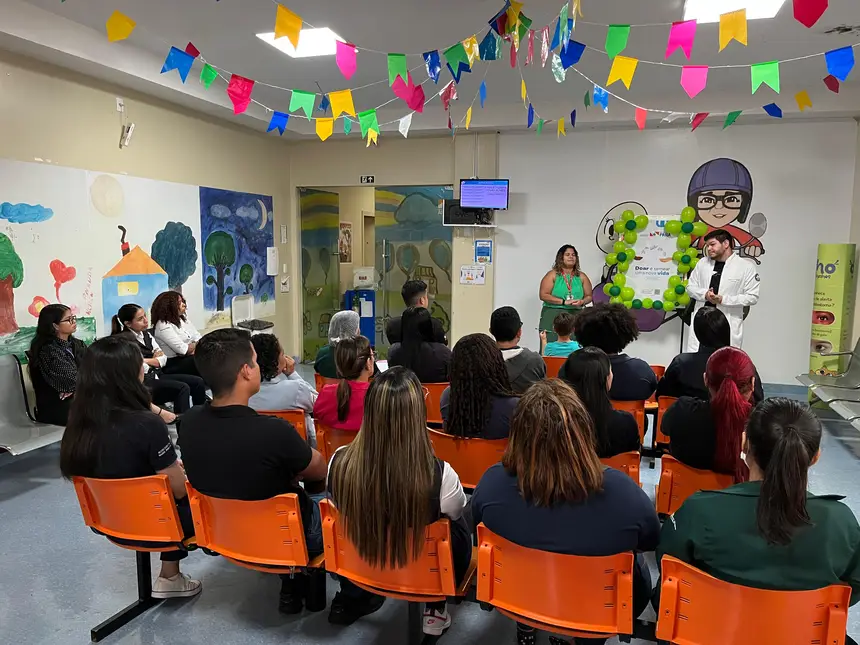
Expressed Wish - Rosinete Soares, 48, did not know about the importance of talking to her family about the desire to be a donor. "It is essential to align everything, to express our wish in life so that they are aware of our will. Another issue that I found very relevant was about registration and the ease of downloading the app. When I registered, there was no National Registry of Bone Marrow Donors (Redome), which was created precisely to facilitate this entire process," she said.
In 2001, Brazil left the presumed donation system and began to follow the consented donation model - the removal of organs can only occur with family authorization, starting with the closest relatives, such as parents, spouses, and children. It is precisely at the moment of mourning, in the face of the loss of a loved one, that specialized teams begin to provide support and dialogue with the families. However, authorization is not always granted, which limits the number of donations made.
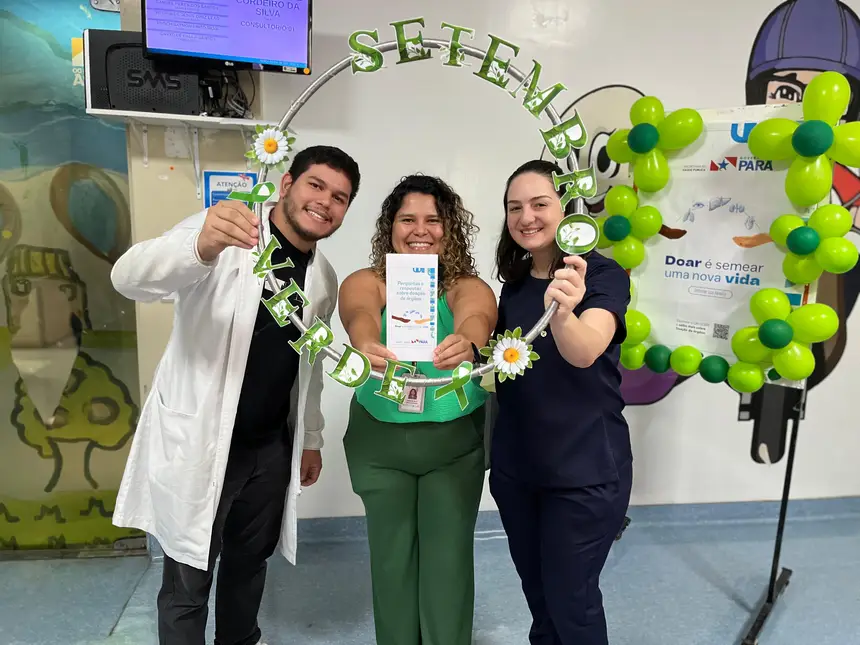
"Most of our patients are oncology cases. Therefore, they are not eligible to be donors. However, all cases with the possibility of brain death are monitored by Cihdott and the State Transplant Center and evaluated individually. Our work also involves clarifying families, ensuring that the necessary information to facilitate donation is disseminated appropriately," informed Cylia Serique, a member of Cihdott Hoiol.
Pediatric oncologist Karoline Silva highlighted myths and cultural barriers that hinder organ donation in Brazil. Among them is the belief that the act may contradict religious precepts, as the country has a great diversity of religions. Another recurring myth is related to the possible disfigurement of the donor's body, which is not true.
"The removal of organs is performed through a surgical procedure, with all necessary aesthetic care, without interfering with the possibility of an open-casket wake. The refusal of families to authorize donation continues to be one of the biggest obstacles, even when the potential donor had expressed the wish in life. Therefore, it is essential to talk to family members and make clear the desire to be a donor, so that, at the time of death, the decision can be respected," advised the specialist.
Waiting List - There are unique waiting lists for each modality managed by the State Transplant Centers (CETs), in which patients are registered through a computerized system (SIG/SNT). The position on the waiting list is defined by the date of registration and by technical compatibility criteria between the donor and the recipient (such as blood compatibility, anthropometric compatibility, and the severity of the recipient). For some transplants, genetic compatibility is also required.
Donation can be from living donors (one of the kidneys, part of the liver, part of the bone marrow, or part of the lungs) or from deceased donors (kidneys, heart, lung, pancreas, liver, and intestine; corneas, valves, bones, muscles, tendons, skin, cartilage, bone marrow, umbilical cord blood, veins, and arteries). To effect the donation, it is necessary to contact the CET by phone at (91) 99740-6531.
Text: Leila Cruz- Ascom/Hoiol



